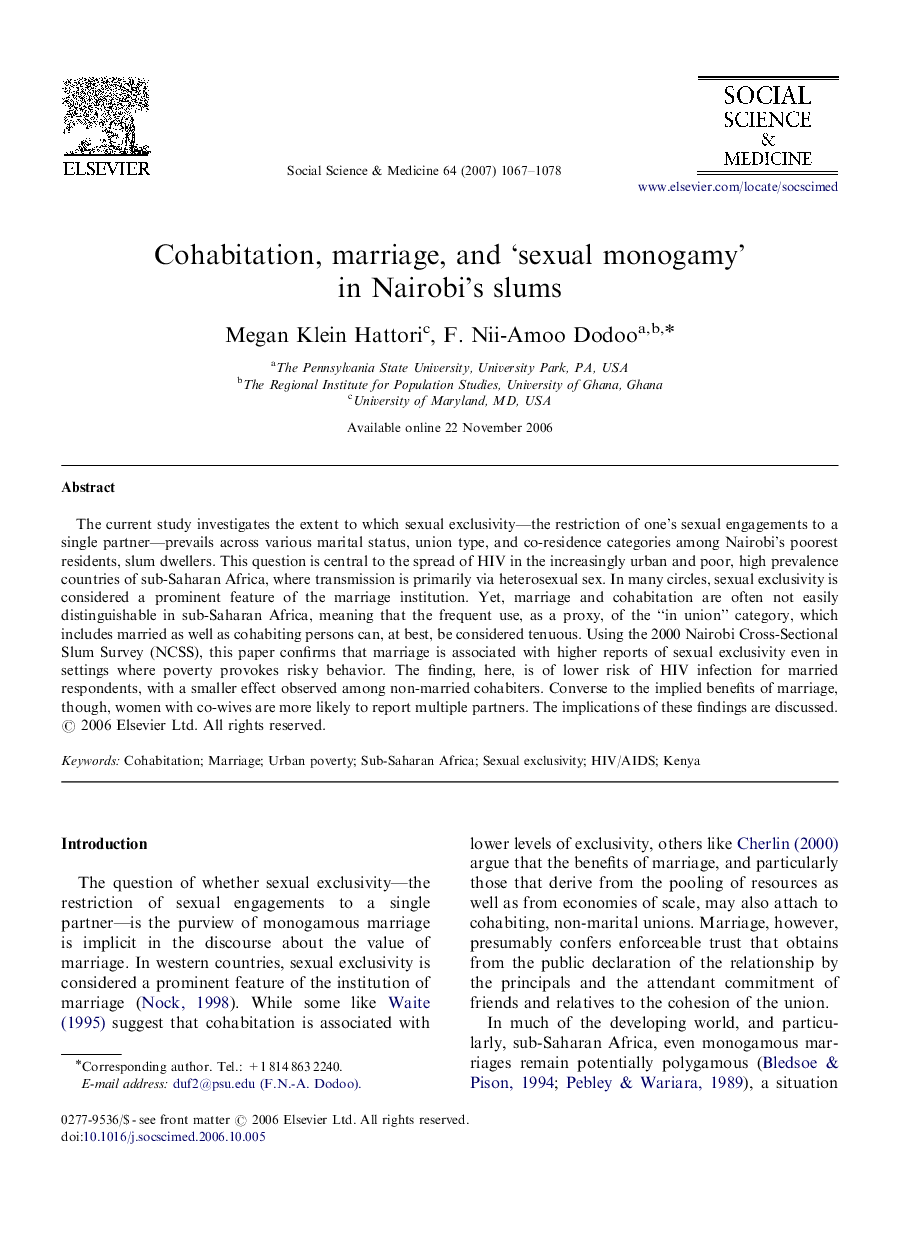| کد مقاله | کد نشریه | سال انتشار | مقاله انگلیسی | نسخه تمام متن |
|---|---|---|---|---|
| 954466 | 927646 | 2007 | 12 صفحه PDF | دانلود رایگان |

The current study investigates the extent to which sexual exclusivity—the restriction of one's sexual engagements to a single partner—prevails across various marital status, union type, and co-residence categories among Nairobi's poorest residents, slum dwellers. This question is central to the spread of HIV in the increasingly urban and poor, high prevalence countries of sub-Saharan Africa, where transmission is primarily via heterosexual sex. In many circles, sexual exclusivity is considered a prominent feature of the marriage institution. Yet, marriage and cohabitation are often not easily distinguishable in sub-Saharan Africa, meaning that the frequent use, as a proxy, of the “in union” category, which includes married as well as cohabiting persons can, at best, be considered tenuous. Using the 2000 Nairobi Cross-Sectional Slum Survey (NCSS), this paper confirms that marriage is associated with higher reports of sexual exclusivity even in settings where poverty provokes risky behavior. The finding, here, is of lower risk of HIV infection for married respondents, with a smaller effect observed among non-married cohabiters. Converse to the implied benefits of marriage, though, women with co-wives are more likely to report multiple partners. The implications of these findings are discussed.
Journal: Social Science & Medicine - Volume 64, Issue 5, March 2007, Pages 1067–1078